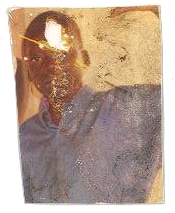A few weeks ago we blogged about African leaders and their increasingly apprehensive stance towards the International Criminal Court. Just a few days ago – a week before the trial of the Deputy President of Kenya, William Ruto, began at The Hague – members of Kenya’s parliament voted to withdraw the country from being a party to the international court.
Ruto was charged with the crimes against humanity of murder, deportation or forcible transfer of population and persecution for acts organised during the election violence that occurred in Kenya in 2007 and 2008.
The countries current president, Uhuru Kenyatta, was also charged with crimes against humanity and his trial is set to begin in November.
What message does the potential withdrawal of one of the more prominent African state-parties to the Court’s statute send for accountability and transitional justice in the region?
The result of ongoing investigations and indictments by the ICC has been that African leaders, under the auspices of the African Union, have felt targeted by the Court and went as far as arguing that the ICC is biased against them. Critics of the Court have also accused it of being racist, imposing Western imperialism and harbouring anti-African sentiments.
If the Court is perceived to be biased against African countries, it is probably because all of the seven investigations it is currently conducting are for crimes allegedly committed in African states. The majority of the on-going investigations, however, were actually referred to the Court by the member states themselves. The Court is also conducting preliminary investigations in eight countries –which include Gambia and Nigeria.
Some argue that “home grown” solutions would be more effective in dealing with African cases. But international tribunals are only one aspect of accountability – being a party to the ICC does not mean countries are inhibited from pursuing their own national and regional forms of accountability, whether in the form of truth and reconciliation commissions or national trials, for instance. The Court, after all, was famously founded based on a principle of complementarity – meaning that it exists to support, but not take away the sovereignty of its member states.
If Kenya withdrew its support for the Court it would mean that individuals responsible for acts of impunity would have one less powerful check to keep them accountable for their acts and, therefore, less be deterred from committing mass atrocities.
Also, an indictment by the ICC does not guarantee that the accused person will be convicted. The presentation of evidence and arguments by both sides as well cross-examination of witnesses during a trial could contribute to the revelation of important details about the occurrences in question. Since truth-telling is an important component of transitional justice, a country that does not participate as a whole would deny itself an opportunity for the lessons that can learned from the process.
Another important aspect of Kenya’s withdrawal is that, as a leader in the region, this could set a precedent for more withdrawals by other African countries. This is a problem because the ICC, and international law as a whole, is built on the support of states that are party to its founding international law agreement. Without the support of state parties, the court would be weak and ineffective since countries would not have any legal obligation to implement its decisions.
We’ll be following the trial and other developments at The Hague in the TJ Monitor. Check back later for more!



